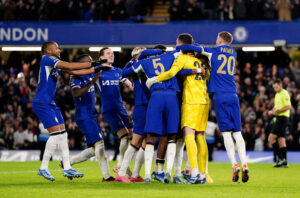Japan beat Colombia in the Group H opener at the FIFA World Cup by two goals to one. In an entertaining encounter, Shinji Kagawa and Yuya Osako got the goals for Japan as Juan Quintero’s clever free-kick proved to be ineffective for the Colombians. In quite a humid day in Saransk, Japan avenged their defeat at the same stage from four years ago. Also, this was the first win for an Asian team against South American opposition at the World Cup at the 18th time of asking.
Japan Overcome Colombia in a Tale of Two Halves
Colombia, having finished in the last eight in Brazil, came into this one as strong favourites. Japan, however, had other ideas despite the pessimism facing their aging squad and incomprehensible managerial situation. In a group that contains little to separate the four teams, the result gave hope to the other three nations who would’ve expected the South Americans to start off strongly. Nevertheless, it wasn’t plain sailing for Japan, nor was it all gloom for José Pékerman’s team.
Japan Wasteful in the First-Half, but Organised in the Second
Japan got a huge advantage right from the off with Carlos Sánchez’s early sending off. The resulting penalty was converted. Japan, however, were passive for most of the first-half. They failed to build on their one-man advantage and played as if they were the ones down to 10. For most of the first 45, they were static, scared and perhaps, showed too much respect to Colombia. They failed to build on their goal and man advantage, which could’ve proven costly. They conceded just before the break, but in the second-half, they were very impressive.
In the second 45, they were compact, organised and played to the plan. The width came from the full-backs and the forward and match-winner, Yuya Osako got more involved in the build-up by dropping deep into midfield, allowing Japan to create more chances for themselves. A key aspect was the role of midfielder Gaku Shibasaki. He started alongside captain Makoto Hasebe in a midfield pair, as Japan played a 4-2-3-1 formation in the second-half. Playing against a 10-man team, he took advantage of the additional space provided to him to maintain the width and create a strong link between attack and defence. A similar task was carried out by his partner frequently, although less prominently.
Japan were quite wasteful with their chances. They had 12 shots on goal, with only half being on target, including the penalty. Luckily, it wouldn’t come to haunt them. Colombia looked tired for the second-half and the introduction of an injury-troubled James Rodríguez didn’t bother them too much. Right-back Hiroki Sakai was also important. He provided an extra outlet of attack on the wing and linked well with the winger in front of him, Genki Hiraguchi, creating width and an offensive presence.
Debate Still Rages on About VAR
The Video Assistant Referee (VAR) wasn’t put into use today, but its application was in question once again. Juan Quintero’s goal came as a result of a free-kick for a foul on Falcao, but it really should have gone Japan’s way. This raised the question about VAR’s application in certain situations. As stated by FIFA, it can only be used in four circumstances: penalty reviews, red card reviews, goal reviews and mistaken identity. This makes it impossible to review free-kick decisions.
Today’s encounter showed that the referee’s decision to award the free-kick to Colombia was wrong – which would ideally have been spotted by the VAR – but at the same time, it shows that using the VAR in free-kick situations would make it repetitive and disruptive to the pace of the game, but then again, such is the importance of the situation and decision that it can change the game. The previous sentence contradicts itself, which is much like the VAR and its application in this World Cup. Perhaps it needs more refining before it is used in a major tournament. It does what its supposed to do, but at the same time, raises further injustices if it is not used.
Colombian Revival Goes to Waste with Lack of Second-Half Effort
Colombia responded well to going a goal and man down. They had to adjust their game-plan and even made the substitution of Juan Cuadrado for Wílmar Barrios in the 31st minute to make-up for lost numbers in midfield. The team pressed higher and with more intensity to catch the Japanese off-guard and for 45 minutes, it worked a treat as they equalised and were threatening for most of the half.
In the second-half, the smart adjustment in Japanese tactics rocked them. They were unable to keep hold of the ball for long periods and Japan made their man advantage count by keeping possession, passing it around with ease and refusing to feel pressure from the stronger rivals. At one point, the Colombians had their three most potent attackers on the pitch – Rodríguez, Carlos Bacca, and captain Radamel Falcao, but the impressive organisation and stability amongst the Japanese midfield and defence were tough to break down and they had to settle for defeat.
This leaves things open in Group H. Colombia next face Poland in a must-win game. The loser almost certainly has to pack his bags. Japan face the other winners from today, Senegal, knowing that if they avoid defeat, they will be in a good spot to progress. This is the most interesting group of the World Cup. Four balanced squads that are packed with talent, this result has made it anyone’s group to win. The least-fancied team on paper have pulled off an upset to put the favourites’ hopes in doubt.
Main Photo:






